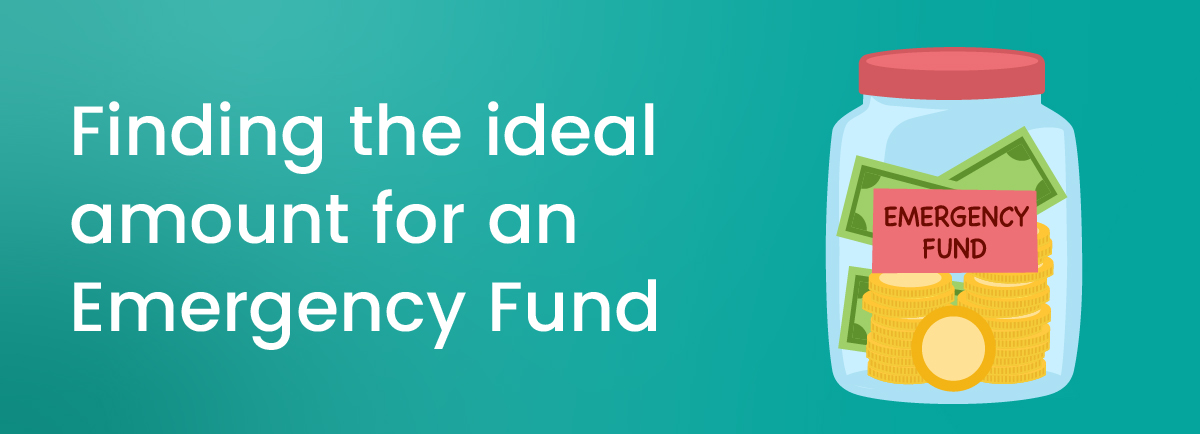
Building Your Safety Net: How Much Should You Save For An Emergency Fund?
01 May 2024 | By INDIE
Life is full of unexpected events, from car repairs and medical bills to sudden job loss or appliance breakdowns. Preparing for these financial surprises is crucial to maintain financial stability and avoid accumulating debt. This is where an emergency fund or credit line comes in – safety nets that act as your first line of defence against unforeseen circumstances.
But the question often arises: how much emergency fund should I have?
There's no one-size-fits-all answer, as the ideal amount varies depending on your individual circumstances. However, we can explore key factors to help you determine the emergency fund amount that's right for you.
Factors to Consider When Determining Your Emergency Fund Amount:
● Monthly Expenses: This is the foundation of your emergency fund calculation. Start by listing your essential monthly expenses, including housing, food, transportation, utilities, and minimum debt payments.
● Number of Dependents: Do you have dependents like children or elderly parents who rely on you financially? Having dependents increases your potential financial obligations in an emergency, necessitating a larger buffer.
● Job Security: Individuals with stable jobs and high job security may require a smaller emergency fund compared to those with freelance or contract work or industries prone to layoffs.
● Debt: Existing debt, especially high-interest debt, can impact your emergency fund needs. If you're actively paying off debt, consider prioritizing debt repayment before solely focusing on building your emergency fund.
● Healthcare Coverage: Having comprehensive health insurance can reduce your potential emergency healthcare expenses, allowing for a potentially smaller fund. However, remember, even health insurance might not cover all costs, so an emergency fund is still essential.
General Guidelines for Emergency Fund Amounts:
While individual circumstances necessitate personalized calculations, general guidelines can provide a starting point:
● 3-6 Months of Living Expenses: This is a widely recommended range for most individuals. It provides a safety net to cover essential expenses for several months while you navigate the unexpected situation.
● Higher Amounts for Specific Situations: Individuals with less job security, dependents, or significant debt may benefit from aiming for a higher emergency fund, potentially 6-12 months of expenses.
Building Your Emergency Fund :
Once you determine your target emergency fund amount, it's time to start building it. Here are some tips:
● Set a Budget and Automate Savings: Create a realistic budget and allocate a consistent amount towards your emergency fund each month. Consider setting up automatic transfers from your checking account to your savings account, ensuring consistent contributions.
● Reduce Unnecessary Expenses: Review your spending habits and identify areas where you can cut back. Every saved rupee is a step closer to building your financial security.
● Explore High-Yield Savings Accounts: Park your emergency fund in a high-yield savings account to earn interest while maintaining easy access to your funds.
Remember: Your emergency fund is not meant to be a source of regular or planned expenses. It's solely for unexpected situations that disrupt your financial stability.
Conclusion:
Building an emergency fund is a crucial step towards achieving financial freedom. By considering your individual circumstances and following these guidelines, you can determine the emergency fund amount that best suits your needs.
While an emergency fund is important, prioritizing existing debt payments like EMIs and insurance premiums might be necessary, especially if you face substantial debt. Building a significant emergency fund in such situations can be challenging.
But what if a medical emergency arises unexpectedly with little to no emergency savings? There's no need to panic. INDIE offers instant loan options to help you tackle such situations. You can explore INDIE’s unique offerings such as flexible repayment periods, competitive interest rates, affordable monthly payments, and fast disbursement and opt for an instant credit line loan.
Now you don’t need to compromise on your necessities, even with lack of funds. Unlock financial security in just a few clicks on INDIE.
Disclaimer: The information provided in this article is generic and for informational purposes only. It is not a substitute for specific advice in your circumstances. Hence, you are advised to consult your financial advisor before making any financial decision. IndusInd Bank Limited (IBL) does not influence the views of the author in any way. IBL and the author shall not be responsible for any direct/indirect loss or liability incurred by the reader for making any financial decisions based on the contents and information.





